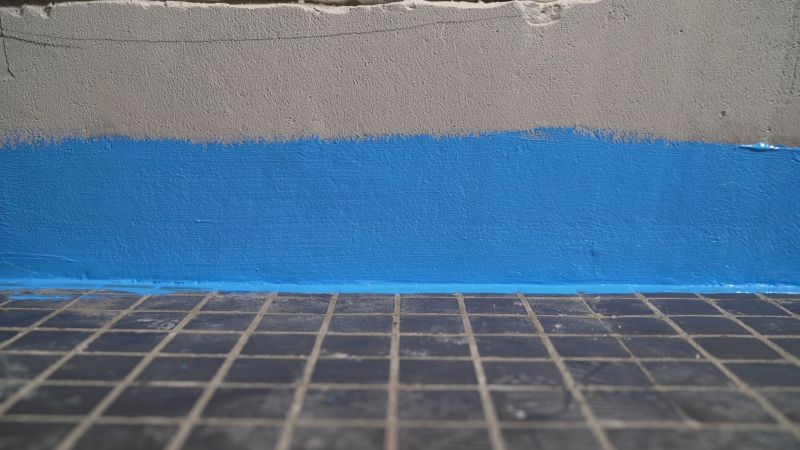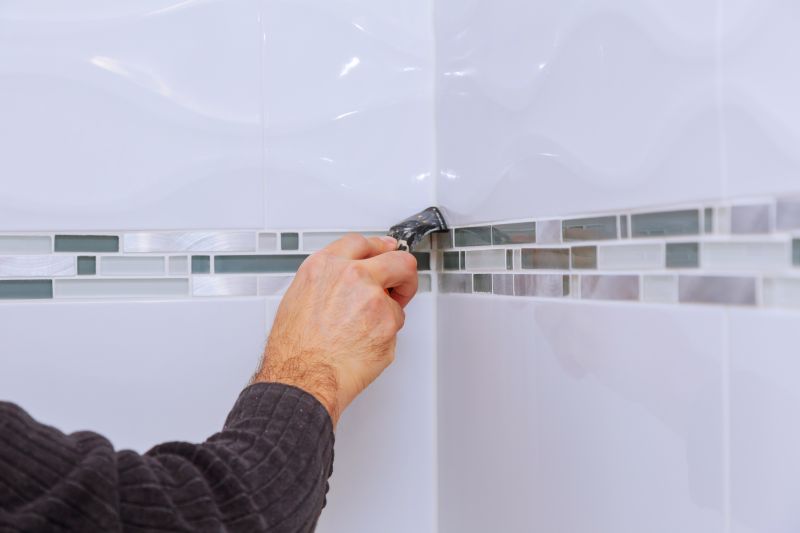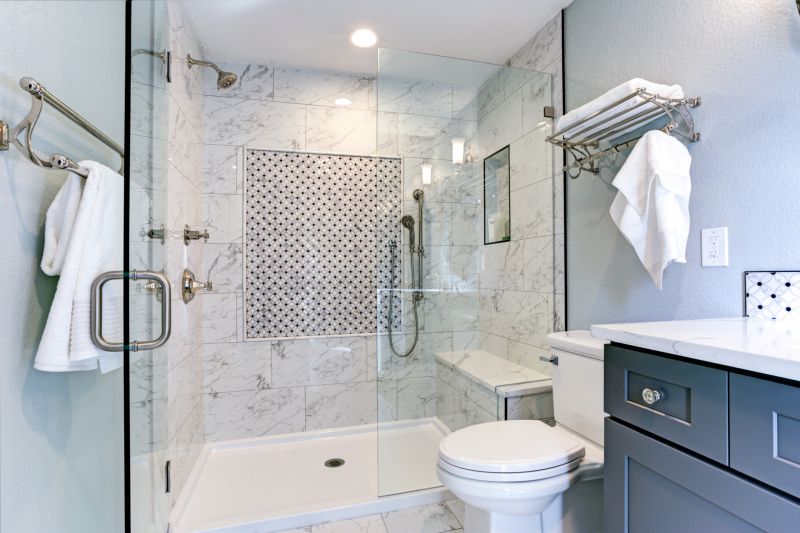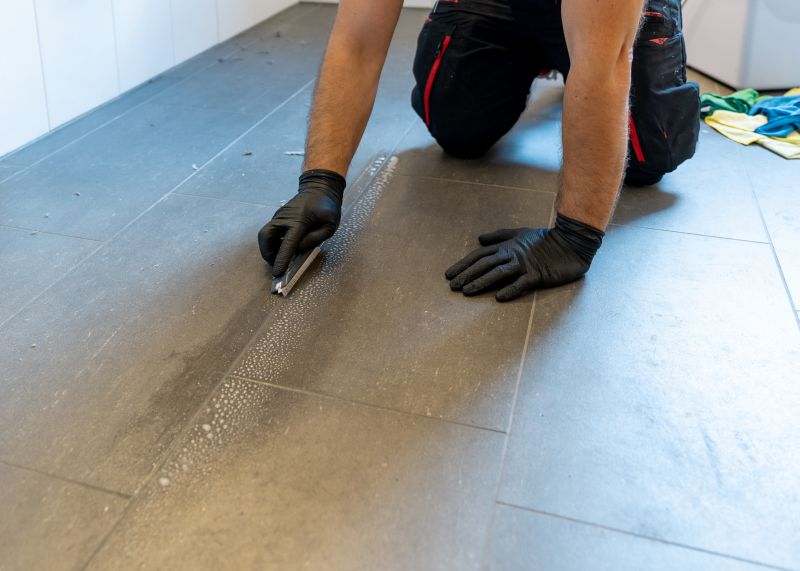Shower Waterproofing Service
Welcome to Aberdeen Showers
Shower Waterproofing Service

About Shower Waterproofing Service
Shower waterproofing is an essential service for homeowners looking to protect their bathrooms from water damage. Ensuring that your shower is properly waterproofed can prevent costly repairs and maintain the structural integrity of your home. Understanding the key considerations and options available for shower waterproofing can help homeowners make informed decisions.
One of the primary considerations in shower waterproofing is the selection of materials. Common materials used for waterproofing include membranes, sealants, and backer boards. Each material has its own benefits and is suitable for different types of shower installations. Homeowners should assess their specific needs and consult with knowledgeable sources to determine the best material for their shower.
Another important factor is the method of application. The application process can vary depending on the material chosen and the specific requirements of the shower area. Proper application is crucial to ensure that the waterproofing is effective and long-lasting. Homeowners should familiarize themselves with the application process to ensure that it is carried out correctly.
Waterproofing membranes are a popular choice due to their flexibility and durability. These membranes can be applied to walls and floors to create a water-resistant barrier. They are available in both sheet and liquid forms, offering versatility for different shower designs. Choosing the right type of membrane can significantly enhance the effectiveness of the waterproofing.
Sealants are often used in conjunction with membranes to provide additional protection. They are typically applied to joints and seams where water is most likely to penetrate. Selecting a high-quality sealant can help reinforce the waterproofing system and prevent leaks in vulnerable areas.
Homeowners should also consider the layout and design of their shower when planning waterproofing. The size and shape of the shower, as well as the placement of fixtures, can impact the waterproofing process. Careful planning can help ensure that all areas are adequately protected and that the waterproofing system is seamlessly integrated into the shower design.
- Evaluate the shower layout and design
- Select appropriate waterproofing materials
- Understand the application process
- Consider the use of membranes and sealants
- Assess potential areas for leaks
In addition to materials and application methods, homeowners should be aware of the potential areas where water damage is most likely to occur. Corners, edges, and seams are common areas where leaks can develop. Paying close attention to these areas during the waterproofing process can help prevent future issues.
Finally, regular maintenance and inspections can prolong the effectiveness of shower waterproofing. Checking for signs of wear and tear and addressing any issues promptly can help maintain the integrity of the waterproofing system. By staying vigilant, homeowners can ensure that their showers remain protected from water damage for years to come.

Understanding the Importance of Shower Waterproofing
Why Waterproofing is Essential for Long-lasting Showers
Waterproofing is a critical aspect of bathroom construction and renovation, especially when it comes to showers. Proper waterproofing ensures that moisture does not seep into walls and floors, which can lead to significant damage over time. Homeowners considering a shower waterproofing service should understand why this process is vital for maintaining the integrity and longevity of their bathrooms.
One of the primary reasons for waterproofing a shower is to prevent water damage. Bathrooms are exposed to high levels of moisture, and without adequate protection, this moisture can penetrate surfaces, leading to mold growth, structural damage, and even health issues. Waterproofing acts as a barrier, keeping water confined to designated areas and protecting the rest of the home from potential harm.
Beyond preventing water damage, waterproofing also enhances the durability of bathroom materials. Tiles, grout, and other components can degrade quickly if exposed to constant moisture. By ensuring these materials are protected, homeowners can enjoy a longer lifespan for their showers and avoid frequent repairs or replacements.
Another benefit of effective shower waterproofing is the preservation of aesthetic appeal. Water stains and mold can ruin the appearance of a bathroom, making it look aged and unkempt. Waterproofing helps maintain the pristine look of tiles and fixtures, ensuring that the bathroom remains a pleasant space for daily use.
- Prevents structural damage
- Reduces mold and mildew growth
- Enhances the lifespan of bathroom materials
- Maintains aesthetic appeal
- Promotes a healthier indoor environment
Moreover, waterproofing plays a crucial role in promoting a healthier indoor environment. Mold and mildew thrive in damp conditions and can release spores into the air, potentially causing respiratory issues and allergies. By keeping moisture at bay, waterproofing helps maintain better air quality and overall health for the household.
In conclusion, understanding the importance of shower waterproofing is essential for any homeowner looking to preserve the functionality and beauty of their bathroom. By preventing water damage, extending the life of materials, and maintaining a healthy environment, waterproofing is a wise investment that pays off in the long run.

Choosing the Right Waterproofing Materials for Your Shower
A Guide to Selecting Effective Waterproofing Solutions
When it comes to maintaining the longevity and functionality of your shower, selecting the appropriate waterproofing materials is crucial. Waterproofing not only prevents water damage but also inhibits the growth of mold and mildew, ensuring a safe and hygienic environment. With various options available in the market, understanding the different materials can help homeowners make informed decisions that will benefit their homes in the long run.
One of the most commonly used waterproofing materials is a liquid membrane. This material is applied as a liquid and forms a seamless, rubber-like layer once it dries. Its flexibility and ease of application make it a popular choice for many homeowners. Liquid membranes are suitable for irregular surfaces and can be used in conjunction with other waterproofing methods to enhance protection.
Another widely used material is the sheet membrane. These are pre-formed sheets that are applied to the shower surfaces. They provide a consistent thickness and are known for their durability. Sheet membranes are often chosen for their ability to create a robust barrier against moisture. They are particularly effective in areas that experience heavy water exposure, such as the shower floor and walls.
Cementitious waterproofing is another option to consider. This material is a blend of cement and other waterproofing agents, which makes it easy to apply and highly effective. It is often used as a base layer for showers and is appreciated for its strength and resistance to water penetration. Cementitious solutions are ideal for those looking for a straightforward application process.
Homeowners may also explore the use of waterproofing tapes and sealants. These materials are typically used to seal joints and corners, providing an additional layer of protection where water is most likely to seep through. They can be paired with other waterproofing methods to ensure comprehensive coverage and protection.
- Liquid Membrane: Flexible and easy to apply
- Sheet Membrane: Durable and consistent
- Cementitious Coating: Strong and resistant
- Waterproofing Tapes and Sealants: Ideal for joints and corners
Choosing the right waterproofing material for your shower involves evaluating the specific needs of your space and considering factors such as ease of application, durability, and effectiveness. By investing in the appropriate materials, homeowners can ensure their showers remain functional and free from water-related issues for years to come. Proper waterproofing is a vital step in bathroom maintenance, offering peace of mind and protecting the overall integrity of the home.




